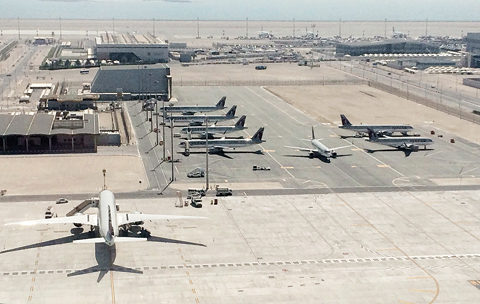KUWAIT: Witnessing the plight of underprivileged families in Kuwait — where both parents may be unemployed, leaving no income to support their children, or encountering 13-year-olds unable to read or write — presents a harsh reality that remains largely hidden from public view. This somber truth was highlighted during the Voices of Service storytelling session held on Wednesday in honor of International Volunteer Day. Organized in partnership with UN Volunteers and in collaboration with Qesati, the event shed light on the challenges faced by marginalized communities.
“People often overlook the struggles others endure, focusing solely on their own lives. We rarely see what happens behind closed doors,” said Muneera Al Jeeran, a Community Engagement Specialist with the Manara humanitarian team in Kuwait. Speaking during the session, Al Jeeran emphasized on the importance of cultivating selflessness through volunteering. On the sidelines of the event, she told Kuwait Times that addressing these societal issues requires breaking the cultural stigma surrounding volunteerism. “Many think, ‘I have a stable life, a job, and everything I need — why volunteer? I don’t have time,’” she noted. Al Jeeran stressed that even small acts of service can create a lasting and meaningful impact, urging more individuals to step forward and contribute to change.

Addressing data gaps
Another gap she highlighted in Kuwait, is the lack of data on underprivileged communities, which she believes is key to creating a sustainable change. “We need statistics and numbers to better understand people’s challenges and measure the impact of our efforts,” she emphasized. Understanding the struggles faced by underprivileged families “humbles you” and fuels a deeper desire to contribute more, according to Farah Al Ali, a member of Basta Non-Profit Company, during the discussion. Basta’s primary focus goes beyond merely providing aid, aiming instead to equip families with the skills and resources necessary for sustainable change. Al Ali emphasized that their mission centers on ensuring children’s education by covering tuition fees, highlighting education as a crucial tool to break the cycle of poverty.
By gaining access to education, children acquire the knowledge and skills needed to secure jobs, support their families, and pursue better opportunities in life. Both Manara and Basta are open to everyone, regardless of age, accepting donations and encouraging volunteer contributions at various workshops and events they organize. You can access more information through their Instagram accounts, websites, and contact numbers. For further details, visit their Manara Instagram or Basta Instagram.
Volunteerism as a graduation prerequisite
Lulwa Al Sharrah, Senior Coordinator at LOYAC, a non-profit organization established with an aim of empowering youth to become impactful leaders in society, highlighted the growing significance of volunteerism, particularly within Kuwait’s educational sector. “In high school, we were required to complete 40 hours of community service to graduate. Now, at LOYAC, we’re working with several private schools that have already adopted similar requirements, with more schools following suit.”
She noted that while mandatory service may seem demanding initially, it helps cultivate a lasting habit. “Over time, students often engage voluntarily, recognizing the value and sense of fulfillment it provides.” Dr Ghassan Al Othman, Consultant Pediatric Respirologist and Founder of Athr, an NPO aimed at empowering the community to build a healthy urban living, explored the scientific basis behind giving and volunteering, focusing on how certain brain chemicals — oxytocin, serotonin, and dopamine — drive human behavior. “As social animals, we are inherently wired not to take, but to give,” he explained.
Reward system behind volunteering
Oxytocin, often called the “love hormone,” plays a role in bonding and trust, while serotonin influences mood and feelings of well-being. Dopamine is linked to reward and pleasure, particularly in response to acts of kindness, such as receiving gratitude or smiles from others. Al Othman emphasized that the positive feedback from helping others — such as a smile — releases dopamine, reinforcing a sense of humanity and connection. Volunteering in difficult situations not only provides support to those in need but also “fulfills an innate human desire for compassion and connection,” he said. Recognizing and encouraging these patterns helps create more compassionate, interconnected urban spaces, added Al Othman.
Ghada Hatim Eltahir Mudawi, the United Nations Resident Coordinator in Kuwait, highlighted Kuwait’s leadership in volunteerism, emphasizing how volunteers, communities, and civil society organizations drive positive and transformative change. She expressed deep appreciation for Kuwaiti volunteers, praising their dedication and passion that inspire the UN team daily. The UN recognizes volunteers as key contributors to principles like “leaving no one behind” and sustainable development, she added.










